SUMMARY
This is AI generated summarization, which may have errors. For context, always refer to the full article.
- Report: South Korea computer networks paralyzed
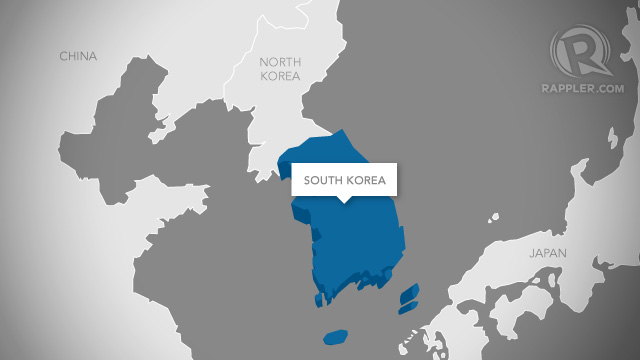 Computer networks in major South Korean companies, including broadcasters and banks, are reportedly “frozen” simultaneously, reports coming from the country said Wednesday, March 20.
Computer networks in major South Korean companies, including broadcasters and banks, are reportedly “frozen” simultaneously, reports coming from the country said Wednesday, March 20.
Read more on Rappler. - Obama embarks on peace trip to Israel/Palestine
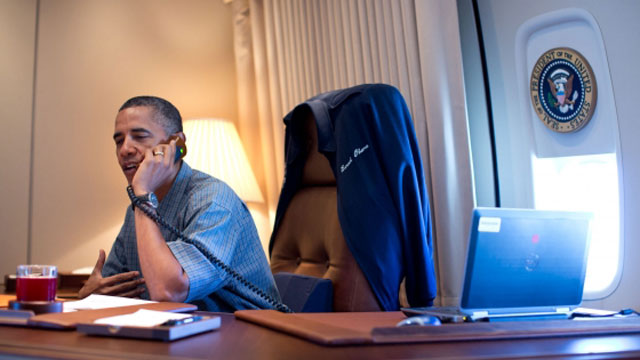 Barack Obama is on his way to Israel Wednesday for the first time as US president, hoping to ease past tensions with his hosts and under pressure to narrow differences over handling Iran’s nuclear threat. Obama’s long-awaited visit, the debut overseas trip of his second term, comes as Israel’s new government settles in and will also expose Obama’s diminished ambitions of forging peace between Israelis and Palestinians. “My goal on this trip is to listen.” On his 4-day trip Obama is scheduled to meet with Israeli President Shimon Peres and Isaraeli Prime Minister Benjamin Netanyahu, Palestine Liberation Organization Chairman Mahmoud Abbas, Palestinian National Authority Prime Minister Salam Fayyad and King Abdullah II in Jordan. Obama says he hopes to and to hear from them, “what is their strategy, what is their vision, where do they think this should go?”
Barack Obama is on his way to Israel Wednesday for the first time as US president, hoping to ease past tensions with his hosts and under pressure to narrow differences over handling Iran’s nuclear threat. Obama’s long-awaited visit, the debut overseas trip of his second term, comes as Israel’s new government settles in and will also expose Obama’s diminished ambitions of forging peace between Israelis and Palestinians. “My goal on this trip is to listen.” On his 4-day trip Obama is scheduled to meet with Israeli President Shimon Peres and Isaraeli Prime Minister Benjamin Netanyahu, Palestine Liberation Organization Chairman Mahmoud Abbas, Palestinian National Authority Prime Minister Salam Fayyad and King Abdullah II in Jordan. Obama says he hopes to and to hear from them, “what is their strategy, what is their vision, where do they think this should go?”
Read more on BBC and Guardian. - Concerns expressed over new UK press regulation

The British government has insisted that bloggers and posts on social media would not be caught by a new system of press regulation, but campaigners warned the new rules could be open to interpretation. Britain’s newspapers are urgently considering whether to sign up to the new system agreed by political leaders on Monday. The new watchdog, underpinned by law, would have the power to issue harsh sanctions on publications that commit ethical violations, including fines of up to $1.5 million. The new royal charter specifically covers “news-related” websites also, sparking uncertainty. In recent years, the authorities have taken a growing interest in prosecuting people for comments made on the Internet. Prime Minister David Cameron however believes the system will find a balance, “I am confident that we’ve set up a system that is practical, that is workable, that protects the freedom of the press and it’s a good strong self-regulatory system for victims.”
Read more on BBC.
Image via Shutterstock. - Cyprus turns to Russia after rejecting EU bailout
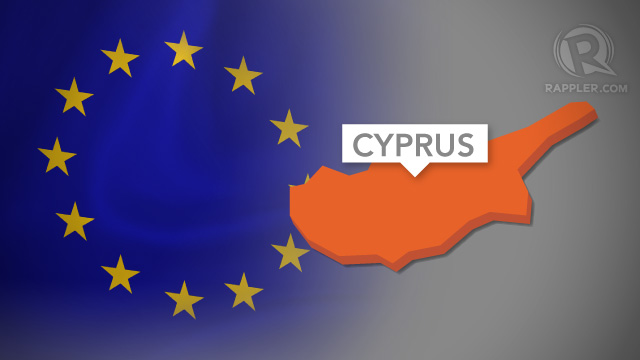 The President of Cyprus has called an emergency meeting of party leaders Wednesday in a frantic search for a viable plan B after MPs rejected the terms of an EU bailout aimed at saving Cyprus from bankruptcy. Under the bailout deal, the European Union, European Central Bank and International Monetary Fund were to provide Cyprus with 10 billion euros ($13 billion) on condition the island raises another 5.8 billion euros. It called for a levy of up to 9.9 percent to be slapped on all Cyprus bank deposits, an unprecedented move that triggered outrage among savers and raised fears other financially crippled EU states like Italy and Spain could be next. President Nicos Anastasiades says he “fully respects” the decision and that he had a “constructive” phone conversation with his Russian counterpart Vladimir Putin, amid reports Cyprus was seeking alternative financing. Meanwhile Germany, which has taken a very hard line on the Cyprus rescue, said it regretted the outcome of the parliamentary vote and warned Nicosia against taking the easy option. Cypriot Finance Minister Michalis Sarris is set to meet his Russian counterpart Anton Siluanov on Wednesday in the hope of easing the terms and winning an extension of a 2.5-billion-euro loan that Moscow afforded Nicosia in 2011.
The President of Cyprus has called an emergency meeting of party leaders Wednesday in a frantic search for a viable plan B after MPs rejected the terms of an EU bailout aimed at saving Cyprus from bankruptcy. Under the bailout deal, the European Union, European Central Bank and International Monetary Fund were to provide Cyprus with 10 billion euros ($13 billion) on condition the island raises another 5.8 billion euros. It called for a levy of up to 9.9 percent to be slapped on all Cyprus bank deposits, an unprecedented move that triggered outrage among savers and raised fears other financially crippled EU states like Italy and Spain could be next. President Nicos Anastasiades says he “fully respects” the decision and that he had a “constructive” phone conversation with his Russian counterpart Vladimir Putin, amid reports Cyprus was seeking alternative financing. Meanwhile Germany, which has taken a very hard line on the Cyprus rescue, said it regretted the outcome of the parliamentary vote and warned Nicosia against taking the easy option. Cypriot Finance Minister Michalis Sarris is set to meet his Russian counterpart Anton Siluanov on Wednesday in the hope of easing the terms and winning an extension of a 2.5-billion-euro loan that Moscow afforded Nicosia in 2011.
Read more on CNN and BBC. - US Official: ‘high probability’ of chemical weapons in Syria
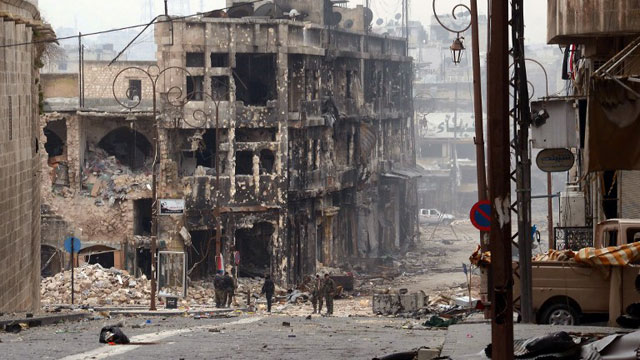 Chemical weapons may have been used in the ongoing war in Syria according to senior US intelligence officials. Speaking to CNN’s Wolf Blitzer, Rep. Mike Rogers, Chairman of the US House Intelligence Committee said there was “high probability” that chemical weapons were used but they still need “final verification.” The statement comes in light of accusations from both sides of the conflict blaming each party for using such weapons. If reports are substantiated, the US could possibly step in on the crisis. President Barack Obama has previously been quoted saying the use of chemical weapons was a “red line” for his administration, “We have been very clear to the Assad regime, but also to other players on the ground, that a red line for us is we start seeing a whole bunch of chemical weapons moving around or being utilized.”
Chemical weapons may have been used in the ongoing war in Syria according to senior US intelligence officials. Speaking to CNN’s Wolf Blitzer, Rep. Mike Rogers, Chairman of the US House Intelligence Committee said there was “high probability” that chemical weapons were used but they still need “final verification.” The statement comes in light of accusations from both sides of the conflict blaming each party for using such weapons. If reports are substantiated, the US could possibly step in on the crisis. President Barack Obama has previously been quoted saying the use of chemical weapons was a “red line” for his administration, “We have been very clear to the Assad regime, but also to other players on the ground, that a red line for us is we start seeing a whole bunch of chemical weapons moving around or being utilized.”
Read more on CNN. - Pope calls to protect creation in safe inaugural mass
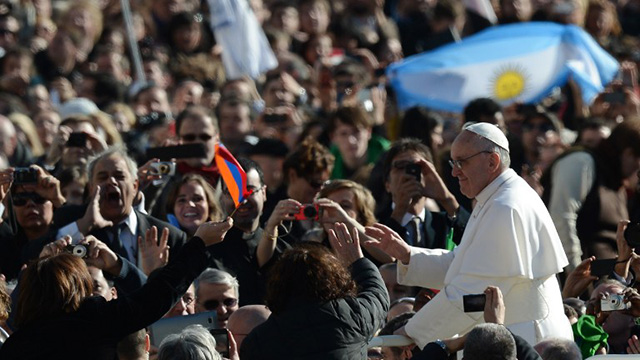
Pope Francis called on the world to protect “the beauty of creation” during his inaugural mass and installation as the 266th leader of the Catholic Church. “Let us be protectors of creation, protectors of God’s plan inscribed in nature, protectors of one another and of the environment. Let us not allow omens of destruction and death to accompany the advance of this world!” said Francis, whose name comes from a 12th-century saint associated with love for creation. Facing hundreds of world leaders, including Philippine Vice President Jejomar Binay, Francis said this call was not just for Christians but for every human being.
But while the first Latin American pope has been heralded by supporters as a progressive, but scholars say he is unlikely to bend on Church doctrine — and key moral issues were glaringly absent from his speech. Critics believe the new pope should be expected to speak out on issues such as the ordination of women, priest celibacy, abortion, euthanasia and gay marriage.
Read more on Rappler here and here. - Almost half of Filipinos returnees from Sabah are children
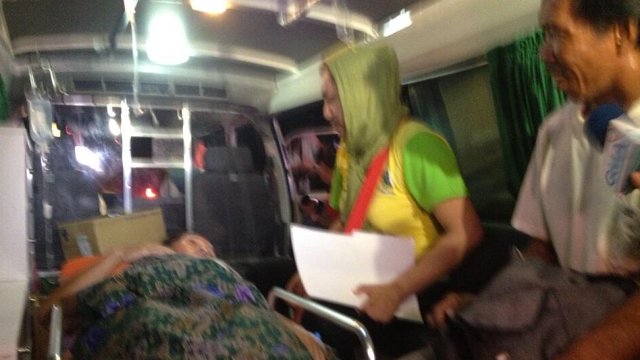
A one-day old baby is among 108 children who returned to Tawi-Tawi from Sabah on Tuesday night, March 19. The baby identified only as “Baby girl Asadah” was born to a 35-year old woman on the island of Taganak near Sandakan, Malaysia, where the processing center for Sabah refugees is setup. Children comprise almost half of this batch of 233 Filipino returnees from Sabah. Based on Rappler estimates, about 3,000 returnees have been processed by the DSWD since the standoff in Sabah between Malaysian security forces and followers of Sultan Jamalul Kiram III (who are staking the claim of the Sultanate of Sulu over the disputed territory) began. The department acknowledged that not all returnees may have been processed. As of Tuesday night, another group of returnees from Sabah are in Taganak, according to the DSWD.
Read more on Rappler. - Ateneo tops bar for 3rd straight year
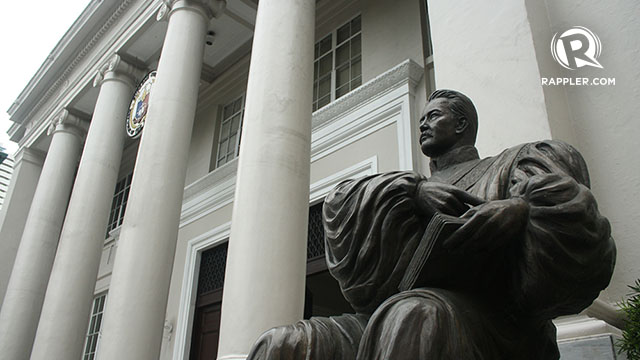
For the third year in a row the Ateneo Law School topped the Bar examinations. The Supreme Court released the 2012 Bar results Wednesday, March 20. Ateneo’s Ignatius Michael Ingles led the list of passers with an 85.64% rating. Six out of the 10 topnotchers are from Ateneo, 4 are from the UP College of Law and one is from the Aquinas University in Legaspi City.
See the full list of passers here. - DOH to RH supporters: “calm down”
 Following yesterday’s decision of the Supreme Court to temporarily stop the implementation of the RH Law the Department of Health (DOH) today called on RH supporters to calm down and wait for developments adding that this is not what our country needs right now. The Health Department was all set to implement the law on Easter Sunday, March 31 however, the department was unable to publish the IRR over the weekend. With the status quo ante order, the implementation of the RH law will be delayed for up to 4 months. For its part Malacañang said they will observe the order and, “are confident that government will be able to defend the merits” of the law. The Catholic Church and pro-life groups welcomed the decision, saying they interpreted the Court’s decision as backing the merits of their argument. The Court, voting 10-5, in favor of the status quo ante order, has set oral arguments on June 18.
Following yesterday’s decision of the Supreme Court to temporarily stop the implementation of the RH Law the Department of Health (DOH) today called on RH supporters to calm down and wait for developments adding that this is not what our country needs right now. The Health Department was all set to implement the law on Easter Sunday, March 31 however, the department was unable to publish the IRR over the weekend. With the status quo ante order, the implementation of the RH law will be delayed for up to 4 months. For its part Malacañang said they will observe the order and, “are confident that government will be able to defend the merits” of the law. The Catholic Church and pro-life groups welcomed the decision, saying they interpreted the Court’s decision as backing the merits of their argument. The Court, voting 10-5, in favor of the status quo ante order, has set oral arguments on June 18.
Read more on Rappler here and here. - Malala returns to school
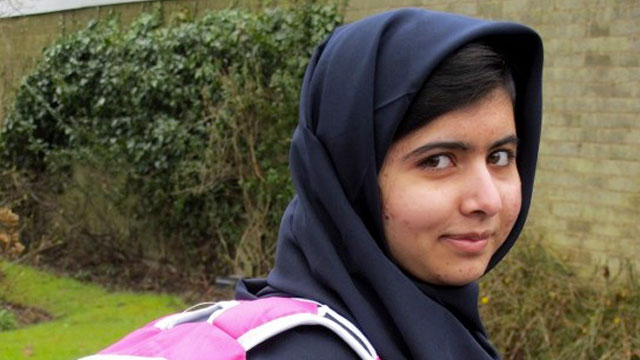 Pakistani teenager Malala Yousafzai returned to school on Tuesday, March 19, for the first time since October when she was shot in the head by the Taliban for campaigning for girls’ education. The 15-year-old who has now moved to the United Kingdom said she had “achieved her dream” and was looking forward to meeting new friends at the independent Edgbaston High School for Girls in Birmingham, central England. Malala was flown to Britain after the attack for surgery for her head injuries and underwent several operations as recently as last month. “I am excited that today I have achieved my dream of going back to school,” she said in a statement. “I want all girls in the world to have this basic opportunity.” She will be studying a full curriculum in preparation for selecting subjects for GCSEs, the standard exams that English schoolchildren typically sit at 16. Malala was shot at point-blank range by a Taliban gunman as her school bus travelled through northwest Pakistan’s Swat Valley on October 9, in an attack that drew worldwide condemnation.
Pakistani teenager Malala Yousafzai returned to school on Tuesday, March 19, for the first time since October when she was shot in the head by the Taliban for campaigning for girls’ education. The 15-year-old who has now moved to the United Kingdom said she had “achieved her dream” and was looking forward to meeting new friends at the independent Edgbaston High School for Girls in Birmingham, central England. Malala was flown to Britain after the attack for surgery for her head injuries and underwent several operations as recently as last month. “I am excited that today I have achieved my dream of going back to school,” she said in a statement. “I want all girls in the world to have this basic opportunity.” She will be studying a full curriculum in preparation for selecting subjects for GCSEs, the standard exams that English schoolchildren typically sit at 16. Malala was shot at point-blank range by a Taliban gunman as her school bus travelled through northwest Pakistan’s Swat Valley on October 9, in an attack that drew worldwide condemnation.
Read more on Rappler and Guardian.
Add a comment
How does this make you feel?





There are no comments yet. Add your comment to start the conversation.